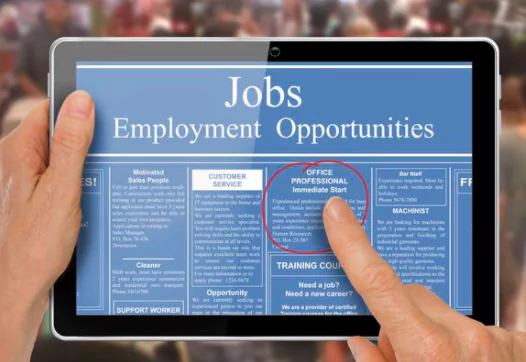
The rising tension between employers’ lofty expectations and disappointing compensation packages is causing widespread frustration among job seekers. Positions demanding significant experience and specialized skillsets, particularly in sectors like SEO, are being met with offers that fall short of market standards. This incongruity often leads to disillusionment among experienced professionals who find the return on their qualifications to be disproportionately low. An alarming trend has emerged where job descriptions requiring 5 years or more of relevant experience, proficiency in multiple tools, and strong communication skills are being rewarded with salaries equivalent to entry-level positions. The discontent is not just over salaries, but also encompasses a lack of benefits, which can be crucial for the well-being of employees. The following article seeks to shed light on these issues, providing insights from both the job seeker and employer’s perspectives.

✅ AI Essay Writer ✅ AI Detector ✅ Plagchecker ✅ Paraphraser
✅ Summarizer ✅ Citation Generator
Key Takeaways:
- Experience does not always equal proficiency.
- Up-to-date skills often outweigh years of experience.
- Evaluation should focus more on adaptability and growth potential.
The Skillset vs. Experience Paradox
The concept of years of experience as a definitive indicator of a candidate’s competence is being questioned by professionals across industries. The crux of this argument centers around the perceived subjectivity and inherent limitations of such a benchmark. As an illustration, an individual with several years of extensive experience in database management might not be proficient in a language like JavaScript despite having the same years of experience with it. Industry insiders argue that it would be more prudent for employers to focus on specific skillsets and examples of relevant work. However, the routine practice of requesting years of experience in job descriptions continues, leading to a disconnect between the employers’ expectations and the actual capabilities of potential candidates.

There’s growing suspicion around the authenticity of certain job advertisements, especially those involving tech companies. Some suspect these job postings, with their seemingly unrealistic demands, to be a tactical move to justify hiring foreign workers when local candidates fail to meet the listed requirements. Moreover, there is widespread dissatisfaction among job seekers about the impersonal, automated hiring processes. Frustrations include receiving bulk, unrelated job suggestions, and indications that cover letters or resumes may not even be read thoroughly. There’s a growing sentiment that this impersonal approach shows a lack of respect towards candidates and their time. This raises questions about the effectiveness of current recruitment strategies and their impact on potential employees.
Why Experience Shouldn’t Dictate Salary Expectations
The correlation between experience and salary expectations is a long-standing tradition in hiring practices. However, it’s time we critically assess whether years of experience should be the primary determinant of salary expectations. Firstly, years of experience does not necessarily equate to proficiency or competence. An individual can work in a field for several years without expanding their skill set or mastering their craft. On the contrary, a less experienced candidate may exhibit exceptional talent, innovation, and efficiency in the same role, offering far more value to the organization.

Secondly, in today’s rapidly evolving technological landscape, the relevance of certain skills can diminish over time, while new ones can become crucial within a matter of years. Thus, a focus on the relevance and currency of skills, rather than years of experience, is far more beneficial to companies striving to stay ahead. Moreover, modern workplaces demand a wide range of soft skills, such as adaptability, problem-solving, and emotional intelligence, which are not necessarily cultivated over time but depend on an individual’s aptitude and personal growth.
Lastly, salary expectations tied to experience can reinforce systemic biases, limiting diversity in the workplace. For instance, candidates who have taken career breaks or come from non-traditional educational backgrounds may be overlooked due to their ‘lack’ of experience, despite their potential to contribute significantly to the role.
| Point | Description |
|---|---|
| Proficiency 🎓 vs. Experience ⏰ | Years of experience doesn’t always mean a person is more proficient or competent. |
| Skill Relevance 🛠️ | In a fast-paced technological world, relevance and currency of skills is more important than years of experience. |
| Importance of Soft 💼 vs. Skills ❤️ | Modern workplaces require soft skills like adaptability, problem-solving, and emotional intelligence which aren’t tied to years of experience. |
| Overcoming Biases ⏳ | Experience-based salary expectations can lead to biases against those with non-traditional backgrounds or career breaks. |
| Holistic Evaluation 🔄 | A candidate’s worth should be evaluated based on skills, adaptability, and potential for growth instead of just experience. |
In essence, while experience can undoubtedly be a useful metric in evaluating a candidate’s potential, it should not be the sole determinant of salary expectations. The value a professional brings to an organization is multi-dimensional, encompassing their skills, adaptability, and potential for growth. As such, it is critical that we move away from a linear approach to salary expectations, replacing it with a more holistic understanding of a candidate’s worth.
Read more:
Labor Market Shows Signs of Slowdown as Job Growth Stalls in Key Industries
University Students Are Getting Ready To Enter The Job Market
Fresh Grads Encounter Challenges in Salary Negotiations
Follow us on Reddit for more insights and updates.





Comments (0)
Welcome to A*Help comments!
We’re all about debate and discussion at A*Help.
We value the diverse opinions of users, so you may find points of view that you don’t agree with. And that’s cool. However, there are certain things we’re not OK with: attempts to manipulate our data in any way, for example, or the posting of discriminative, offensive, hateful, or disparaging material.